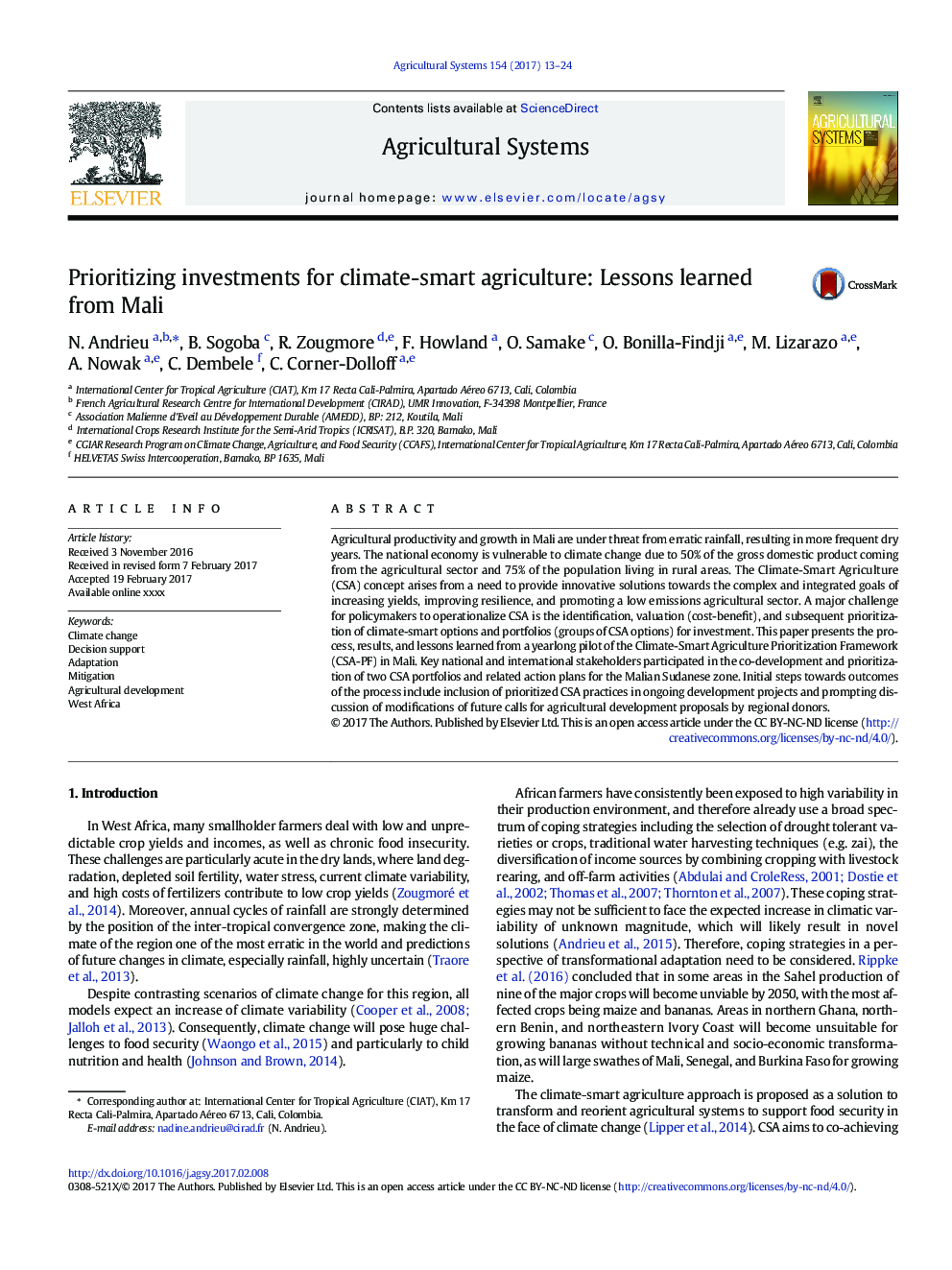| Article ID | Journal | Published Year | Pages | File Type |
|---|---|---|---|---|
| 5759657 | Agricultural Systems | 2017 | 12 Pages |
Abstract
Agricultural productivity and growth in Mali are under threat from erratic rainfall, resulting in more frequent dry years. The national economy is vulnerable to climate change due to 50% of the gross domestic product coming from the agricultural sector and 75% of the population living in rural areas. The Climate-Smart Agriculture (CSA) concept arises from a need to provide innovative solutions towards the complex and integrated goals of increasing yields, improving resilience, and promoting a low emissions agricultural sector. A major challenge for policymakers to operationalize CSA is the identification, valuation (cost-benefit), and subsequent prioritization of climate-smart options and portfolios (groups of CSA options) for investment. This paper presents the process, results, and lessons learned from a yearlong pilot of the Climate-Smart Agriculture Prioritization Framework (CSA-PF) in Mali. Key national and international stakeholders participated in the co-development and prioritization of two CSA portfolios and related action plans for the Malian Sudanese zone. Initial steps towards outcomes of the process include inclusion of prioritized CSA practices in ongoing development projects and prompting discussion of modifications of future calls for agricultural development proposals by regional donors.
Related Topics
Life Sciences
Agricultural and Biological Sciences
Agricultural and Biological Sciences (General)
Authors
N. Andrieu, B. Sogoba, R. Zougmore, F. Howland, O. Samake, O. Bonilla-Findji, M. Lizarazo, A. Nowak, C. Dembele, C. Corner-Dolloff,
